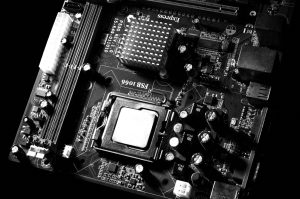Smart Contracts Revolutionizing Legal Tech Software
The legal industry has traditionally been known for its slow and cumbersome processes, often involving mountains of paperwork and lengthy negotiations. However, with the rise of technology and innovation, the legal landscape is quickly evolving. One technology that is causing a stir in the legal world is smart contracts. These self-executing contracts are revolutionizing the way legal tech software operates, providing faster, more efficient, and more transparent solutions. In this article, we will explore how smart contracts are changing the legal industry and why legal tech software is now embracing this revolutionary technology.
The Concept of Smart Contracts
Smart contracts are digital contracts that rely on blockchain technology to facilitate automated and self-executing agreements between parties. These contracts use computer code to enforce the terms of the agreement, eliminating the need for intermediaries such as lawyers, banks, or notaries. The underlying technology behind smart contracts is blockchain, a decentralized digital ledger that records and verifies transactions.
Advantages of Smart Contracts
One of the key advantages of smart contracts is their speed. Traditional legal contracts involve multiple steps, including drafting, reviewing, and negotiating, which can take weeks or even months. Smart contracts, on the other hand, are created quickly, and once agreed upon by the parties, they are executed instantly.
Another benefit of smart contracts is their efficiency. Since they are self-executing, there is no need for intermediaries, which significantly reduces the chances of errors or disputes. This also leads to cost savings, as there is no need to pay intermediaries for their services.
Moreover, smart contracts are transparent and secure. The use of blockchain technology ensures that all transactions are recorded and cannot be altered, providing a transparent and tamper-proof system. This is particularly beneficial in the legal industry, where trust and transparency are paramount.
Smart Contracts in Practice: Real-Life Examples
Smart contracts are currently being used in various industries, such as supply chain management, finance, and insurance. However, their potential in the legal industry is immense. For instance, in real estate, smart contracts are being used to transfer property ownership. The contract verifies the ownership of the property and automatically releases the funds to the seller once all conditions of the contract are met.
Another example is in the music industry, where smart contracts are being used to automate music royalty payments. This ensures that artists receive their fair share of royalties without relying on intermediaries.
In the legal field, smart contracts are streamlining contract management and compliance. These contracts can be programmed to ensure that all parties comply with the terms of the agreement, reducing the risk of disputes and non-compliance.
The Future of Legal Tech Software with Smart Contracts
Smart contracts are on their way to becoming a game-changer in the legal tech software industry. As more businesses and individuals embrace blockchain technology, the demand for smart contracts in the legal field is increasing. Legal tech software companies are now incorporating smart contracts into their platforms, providing their clients with more efficient and secure contract management solutions.
Going forward, we can expect to see more use cases of smart contracts in legal tech software. This technology has the potential to automate various legal processes, such as contract review and validation, legal document management, and dispute resolution.
Challenges and Considerations
As with any new technology, the adoption of smart contracts in the legal industry is not without its challenges. One of the main challenges is the lack of awareness and understanding of the technology. Many legal professionals are still skeptical about using smart contracts, seeing them as a threat to their jobs.
Moreover, legal systems and regulations will need to adapt to accommodate the use of smart contracts, which may involve changes in laws and policies.
Finally, there are concerns about the security and reliability of smart contracts. While blockchain technology is secure, it is not immune to hacking and data breaches. As such, thorough testing and monitoring of smart contracts will be crucial to ensure their integrity.
Conclusion
Smart contracts are revolutionizing the legal industry, providing faster, more efficient, and more secure solutions for contract management and compliance. As legal tech software continues to evolve, we can expect to see more use cases of smart contracts, ultimately transforming the way legal services are delivered. As with any technology, challenges and concerns must be addressed, but the potential benefits far outweigh the hurdles. The future of the legal industry looks promising with the inclusion of smart contracts.










